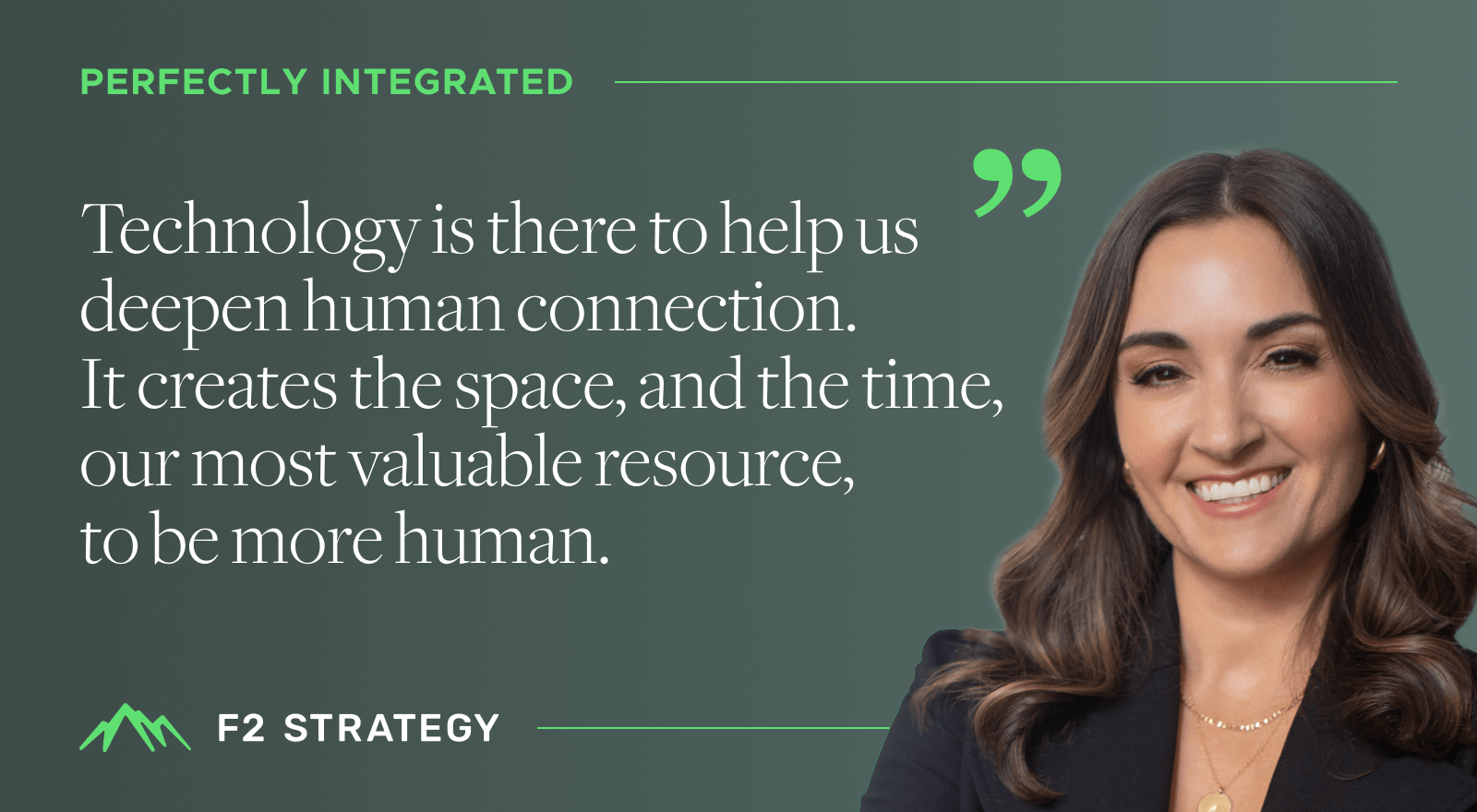F2 Strategy’s Executives in Residence bring years of high-level experience to our clients and with that comes unique perspectives and powerful insights that wealth management firms can use to make critical decisions. Our “What I’ve Seen” series gives the executives an outlet to share their insights with the industry in three categories: driving change, marketing and sales, or customer-centric business.
F2 Strategy Executive in Residence, Mike Zebrowski, speaks to driving change through the evolution of data standardization & integration and the need for an industry data exchange.

The past two decades of technology innovation has seen a power play between two strategic directions: platforms vs. ecosystems. An easy way to visualize this is by looking at smartphone technology. The Blackberry was a closed platform where every application had to be built and maintained by the vendor. While the Apple iPhone is an open ecosystem where third parties build apps that both extend and take advantage of the network benefits.
The open ecosystem approach was the clear winner in the smartphone market. And the same story is playing out in wealth management technology as well. There are still many closed platform providers, but many of the most popular enterprise systems, such as InvestCloud, Envestnet, Orion and Advisor360 are looking to build their own ecosystems. Newer solutions such as MyGellerCFO, CarsonCX, and Cambridge Digital Workstation are looking like early-stage ecosystems as well.
While ecosystems are the future direction, there’s still real work for the industry to do first. And one or two firms can’t do it alone, we need an industry-wide standard integration and data indexing solution.
An industry standard that includes an open integration software development kit (SDK) will improve data quality and speed of data integration. Third-party providers will be able to connect to every application in the network through a single integration into the universal SDK.
This advancement will enable the wealth management industry to evolve and finally address the four key obstacles blocking the path to exponential growth:
Firms Need to Own Their Data
Right now, firms are taking custody, but not ownership of their data. Because platforms are still so prominent, data is held in many separate silos—CRM data is in one place, financial planning data in another, performance reporting data in yet another. For firms to regain ownership and be able to fully leverage their data, it needs to be stored in a single location so it can be fully normalized, indexed, and secured. But this can be a difficult task for companies that don’t have the depth of expertise in data lakes, data warehouse,s and other technologies.
Focus on Middle and Back Office Efficiency
More fintechs are focusing on the middle and back office, since it is where many firms need support. Today, advisors aren’t seeing fee compression, they are seeing margin compression caused by technology and operational inefficiencies. They also don’t want to work with more clients, they want to be more efficient with the clients that they have. They need to be face-to-face to solve, mentor, and coach as much as possible. And finally, they need a single, consolidated client portal with a strong UI.
By automating the key middle and back office processes, we can alleviate some of the pressure on margin compression, give advisors more face time with clients, and simplify the delivery of a high-quality client experience.
Rebuild First Gen APIs
First generation APIs were inefficient, latent, and not built for the right business use cases. Rebuilding them will make them more useful, but can be expensive. Cloud technology and second gen APIs will allow vendors to build a single integration that plugs into an industry standard that opens the door to dozens or hundreds of connections. These APIs will enable development of robust data exchanges that reduce the complexity when building advanced portals and dashboards.
Increase Client Self Service Tools
Self-service should no longer be a dirty word for advisors. More clients want to do their own research and handle basic administrative tasks, which can lower costs while increasing their satisfaction levels.
Research has shown that the average self-service interaction costs only 1% of a live channel interaction, which means that digital services benefit both advisory firms and their clients. But even the clients that strive for more self-service options still want their advisor to help them validate and make important financial decisions. Therefore, it’s beneficial to both parties to open up some of the middle and back office work to the client.
The Road Ahead for Data Indexing and Integration
The next frontier of data integration will inspire significant benefits for wealth management firms. To get there it’s going to take all of us—both big and small firms—to participate and experts to help us. Coming together to index the data and create a data exchange in an industry standard will cure the sluggish adoptions, increase efficiency for the industry as a whole, and serve as a launchpad for the next wave of innovation.
CTA: If you want to learn more about ecosystems and integrations, contact us to discuss strategy, standardization, and more.

.png)


